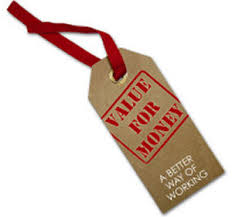Whether you’re communicating about wine in a newspaper or a magazine (with a few honourable exceptions), or even if you’re recommending wines on a TV show, we wine writers come under an awful lot of pressure to recommend wines that are a) sold in supermarkets and b) cost under a tenner.
While I’m happy to recommend the occasional supermarket wine, and am delighted if I can find a great-value bottle of wine, I am never going to recommend wines just because they’re widely available or cheap.
Before I get accused of being an elitist wine snob, though, I feel that I should explain my reasoning. Let’s tackle the biggest elephant in the corner first. When I first started writing about wine in 2000, the average price of a bottle of wine sold in the UK was somewhere in the region of £3.80. These days it’s gone up to around a fiver. Does that mean most of us are drinking better wine? Sadly, the answer is no. Over the course of the past 15 years, VAT has risen to 20% and import duty is now over £2 a bottle (in total, the tax on a £5 bottle of wine takes up 57.7% of its price)*. By the time you factor in the cost of packaging, then shipping the wine from its source, the cut taken by the importer and the retailer’s profit margin, it doesn’t take a genius to work out that the cost of the actual wine in the bottle is minimal. In fact it has barely changed in 15 years, and in real terms its value has fallen.
If, on the other hand, you spend somewhere around £8 on a bottle, in comparative terms the VAT goes up slightly, as does the profit taken by the importer and the retailer, but packaging, shipping costs and import duties remain relatively steady. As a result the value of the wine itself goes up. Spend a little bit more, and there’s even more money that can go into the wine.
Furthermore, by spending a little bit more, the chances are that you’ll be buying a wine made not by a large company that produces in bulk (making loads of wine is the only way a producer can make money from selling at very tight margins) but from a small or medium-sized winery. Many of these are family-run operations, and the wines are often made by people who put a lot of time and effort into crafting cuvées with real character and a sense of the place where they were grown. Taste some of these wines and I think you’ll agree that value for money is a far better benchmark for your wine purchases than sheer cheapness.
As for supermarkets… I’ve got nothing against supermarkets, per se. After all, the supermarkets were responsible for democratising wine back in the 1980s, and it’s where most people buy their everyday wines. Supermarkets certainly have the convenience factor in their favour. But we’ve got used to buying an awful lot of stuff online these days, so how about giving a wine merchant with a website a whirl? Furthermore, there’s a growing band of quirky, individual wine merchants who offer the opportunity for you to taste and experiment before you buy, largely thanks to the installation of enomatic machines (which allow small servings of wine to be be poured without compromising the quality of the remaining wine in the bottle). And some wine bars offer off-trade sales, so if you enjoy what you’ve been drinking with your dinner, you can take a bottle home to enjoy at a later date.
* If you really want to see how much of the amount you spend on a bottle of wine goes in tax, download the rather fab UK Wine Tax Calculator app.
